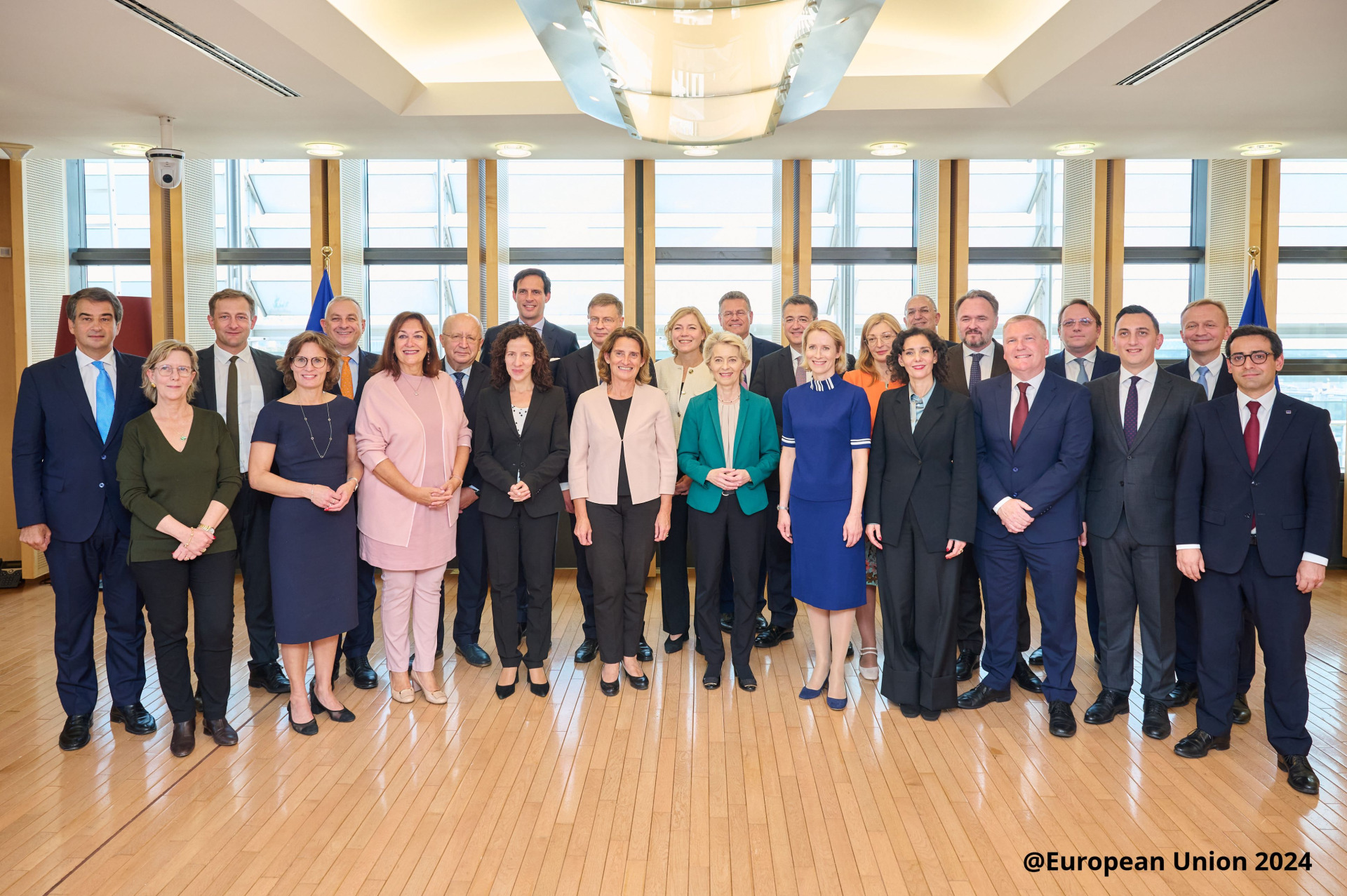
On 17 September, Ursula von der Leyen, President of the European Commission (EC), unveiled the highly anticipated composition of her new team of 26 commissioners-designate, following extensive speculation and a week’s delay. This announcement came two months after the presentation of her political guidelines, a key document outlining the EU executive’s priorities for the next five years. The revamped structure of the College of Commissioners reflects a strong ambition to simplify processes and enhance focus on competitiveness throughout the new institutional term. The updated organisational chart now features only two levels of governance under the President—Executive Vice-President and Commissioner—down from three in the previous mandate, with the “Vice-President” roles eliminated.
An examination of the titles and missions assigned to the commissioners-designate reveals that the clean energy transition towards a decarbonised society remains a central priority for the incoming Commission. This commitment is closely linked to competitiveness, as demonstrated by the establishment of a significant Executive Vice Presidency for a “Clean, Just and Competitive Transition,” which will oversee competitiveness matters along with the energy, climate, and environment portfolios. This substantial role will be assigned to Spanish socialist Teresa Ribera, an experienced politician who has served as Spain’s ecological transition minister for several years. She will work collaboratively with several counterparts, including Wopke Hoekstra (EPP), the Dutch Commissioner who replaced Frans Timmermans in the Climate role and will continue as Climate Commissioner, now also responsible for “Net Zero and Clean Growth.” Jessika Roswall (EPP), Sweden’s Commissioner-designate, will manage the Environment portfolio, while Denmark’s Dan Jørgensen (S&D), a former energy and climate minister, has been appointed to the Energy role, which is now for the first time linked to Housing.
The Research & Innovation position, assigned to Bulgaria’s Ekaterina Zaharieva—the third Bulgarian representative in a row in the job —appears set to gain prominence this term, as growing momentum for R&I as a crucial element in boosting competitiveness is underscored among others in the landmark Letta and Draghi reports. The portfolio now explicitly includes Startups, while themes such as Youth, Culture, Education, and Sports—previously associated with R&I—will fall under the responsibilities of a different commissioner: a shift indicating that scaling up innovation and bringing new technologies to market will be primary objectives for the incoming Commission.
Observers suggest that this distribution results from a carefully crafted equilibrium, balancing Ribera’s ambitious climate and social goals with the perspectives of the EPP, which campaigned against significant elements of the European Green Deal in the previous mandate, including the Nature Restoration Law and the 2035 ban on new petrol and diesel cars. Overall, the Commission’s new structure aims to foster shared responsibilities among members, reflecting von der Leyen’s insistence on each Commissioner’s “equal responsibility to deliver on our priorities.” However, several analysts have raised concerns about the scattering of responsibilities across portfolios, potentially leading to weakened action.
Against this backdrop, significant steps, though, still lie ahead before the new Commission can officially take office. First, the European Parliament’s Legal Affairs Committee will need to examine the declaration of interests for each Commissioner-designate. Following this, each will appear before the relevant parliamentary committees for a confirmation hearing, providing an opportunity to assess their expertise and political commitment. In recent years, these hearings have become increasingly political, reflecting the growing scrutiny of candidates and the intensified stakes involved in their appointments, with extensive questioning and changes to the proposed team of Commissioners being reasonably expected. After the hearings, the coordinators of each political group will cast their votes; if approved, the entire College of Commissioners will then face a single vote by the European Parliament. The timing of the hearings is still under discussion, with the Parliament suggesting a period from 4 to 12 November, while the Commission advocates for an earlier date in October, which could potentially allow the new College to take office on 1 November as initially planned, instead of 1 December.